Contact us
-
1
-
2
-
3
-
4
-
5
-
6
It will take ~10 minutes to work through Section One
PTSD: What is it?
If you experience unwanted memories of distressing experiences and it feels like past events are happening again, you might have post-traumatic stress disorder (PTSD).
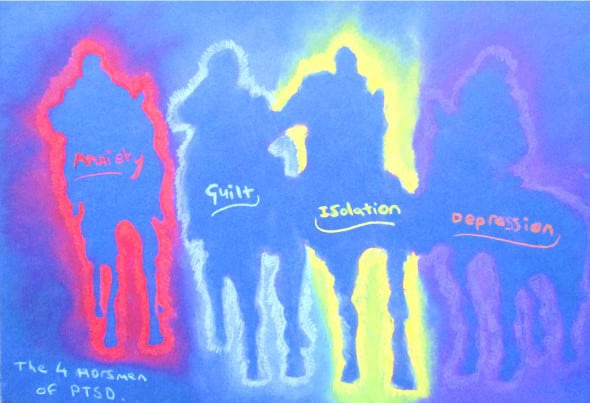
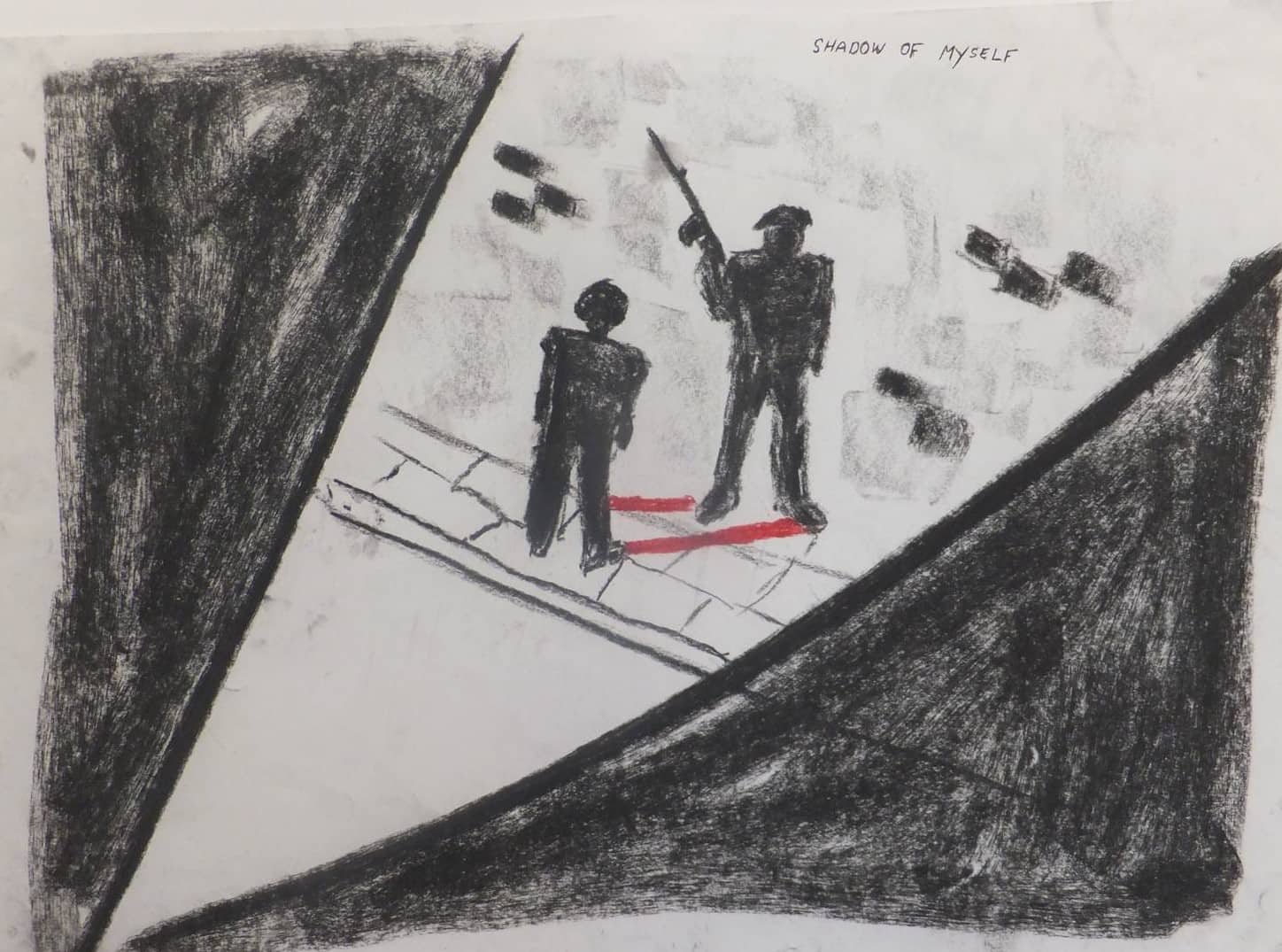

These images were created by veterans during art therapy as part of their recovery journey.
They've been shared to raise awareness and to help others understand.
Do you:
- Have unwanted memories of past events pop into your head?
- Experience upsetting dreams about difficult situations you've been through?
- Stay away from things that remind you of past events?
- Feel on edge and like you can't relax?
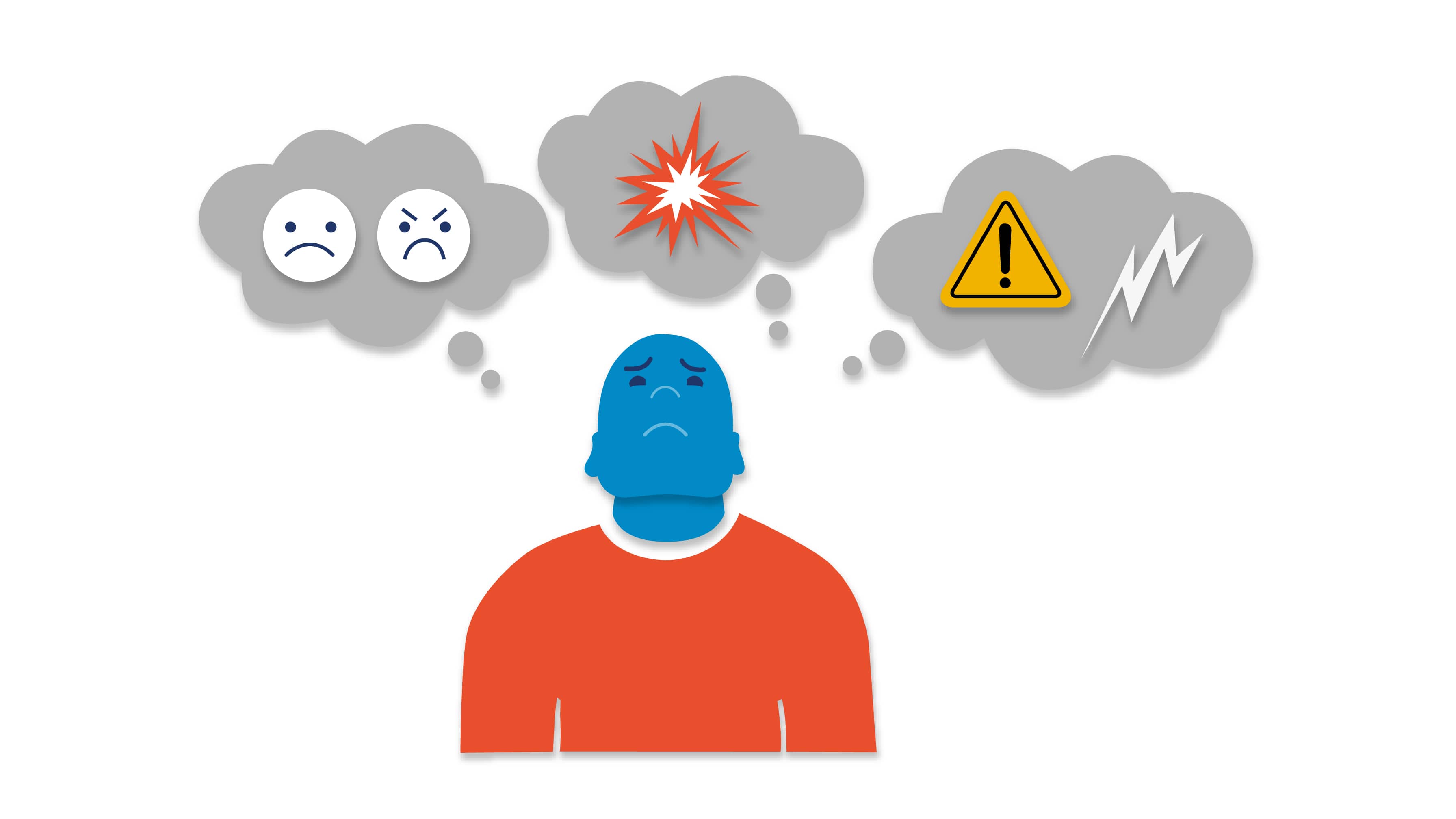
What do we mean by traumatic?
Trauma means 'injury'. When mental health professionals talk about trauma, they mean something very specific, that is:
An event that was life-threatening or threatened the safety of yourself or others.
Trauma can be something that happened directly to you, something you witnessed happening to somebody else or something you heard about that happened to a close friend or family member.
Some examples might include:
- seeing a friend or colleague injured
- coming under enemy fire
- witnessing the loss of comrades
- seeing the aftermath of war
- helping injured civilians including children
- being bullied or assaulted by military colleagues
You may have experienced trauma that isn't on the list. You may find it difficult to pinpoint a particular trauma that started your difficulties. For some people, difficulties arise due to repeated trauma over time.
To struggle after a trauma is a normal part of recovery. For some, however, the difficulties will go on to develop into PTSD.
How do we develop PTSD?
You may be thinking 'shouldn't my military training have prepared me to deal with trauma?'
Unfortunately, despite the best possible training, traumatic experiences of this kind can still have profound and lasting effects. Military training is vital in preparing you to survive in dangerous situations by responding automatically and strategically. However, it does not necessarily prepare you to manage the after-effects (how the trauma might have left you feeling).
PTSD develops as a result of the way in which memories of a traumatic event are stored in the brain.
Learn more about PTSD and the brain
As you explore the brain before and during trauma, begin with the Amydala before reading about the Hippocampus.
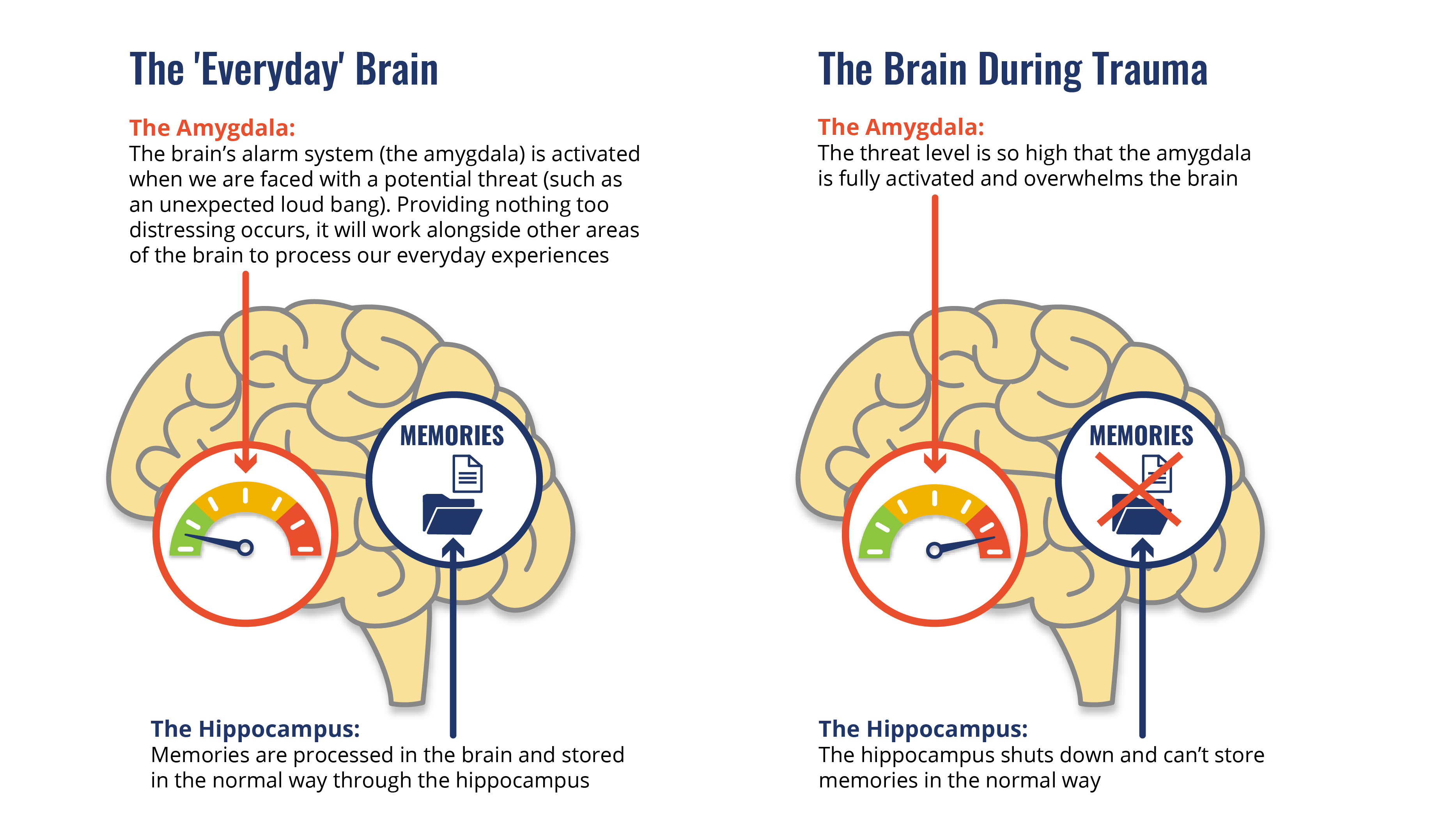
Why might veterans struggle with PTSD?
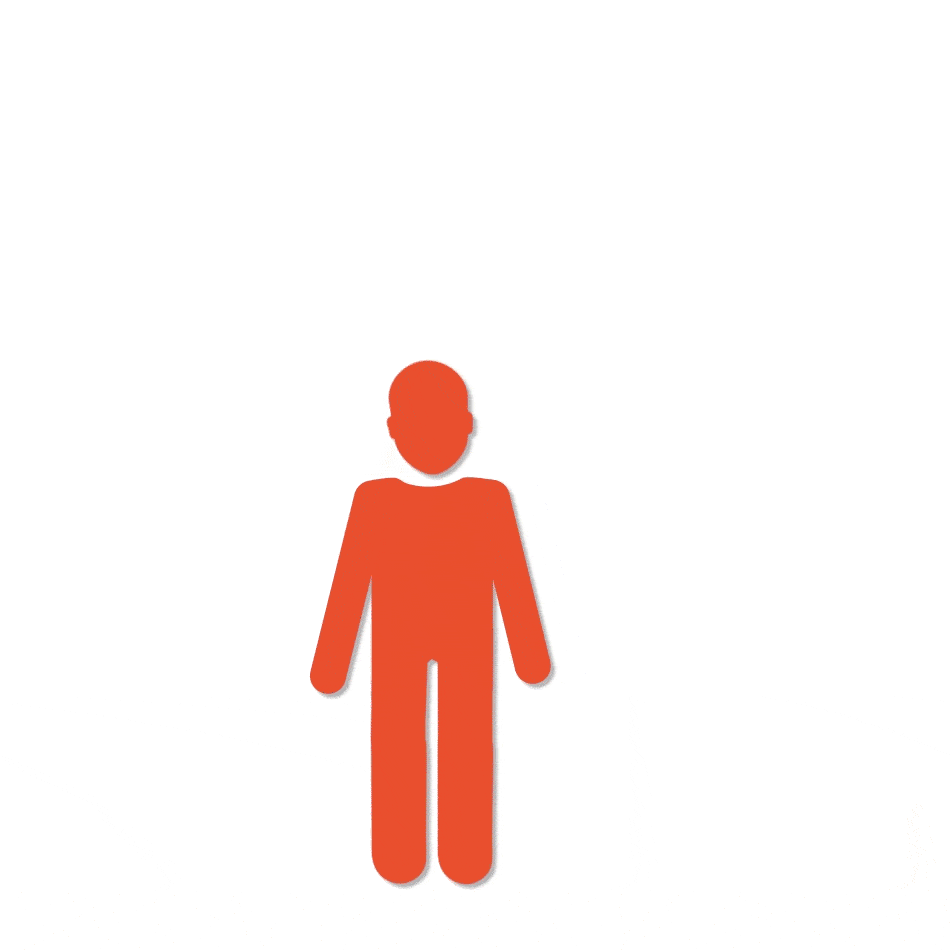
PTSD often occurs alongside other difficulties.
The symptoms of PTSD can arise following exposure to a single trauma or multiple traumas. Being in the military increases the likelihood that you will have experienced a traumatic event or faced multiple traumas. Some of the things you've seen or had to do might also have breached your ethical code, leaving you with feelings of guilt and shame.
Military culture also means you're less likely to talk about the impact of trauma and its emotional impact. Whilst the event may be a distant memory, for some the impact can remain for months, or even years after leaving the forces.
Many veterans avoid certain reminders of their trauma to prevent unwanted trauma memories.
These are just a few examples of some of the ways veterans might try to control the symptoms of PTSD:
- withdrawing from military friends
- hiding your medals away out of sight
- leaving the room at certain points in a film or TV programme
- only going out when it's quiet
- 'self-medicating' with alcohol or drugs to block out difficult feelings
Additional Resources
Was this page useful?
This information was published on 30 October 2020.
Is there someone I can call and talk to?
Our Helpline is open 24/7, please do not hesitate to call if you need someone to talk to or any guidance.
Combat Stress 24/7 Free Helpline 0800 138 1619.
If you require more urgent help, either yourself or a member of your family feel unsafe, please contact your GP or telephone 111.

